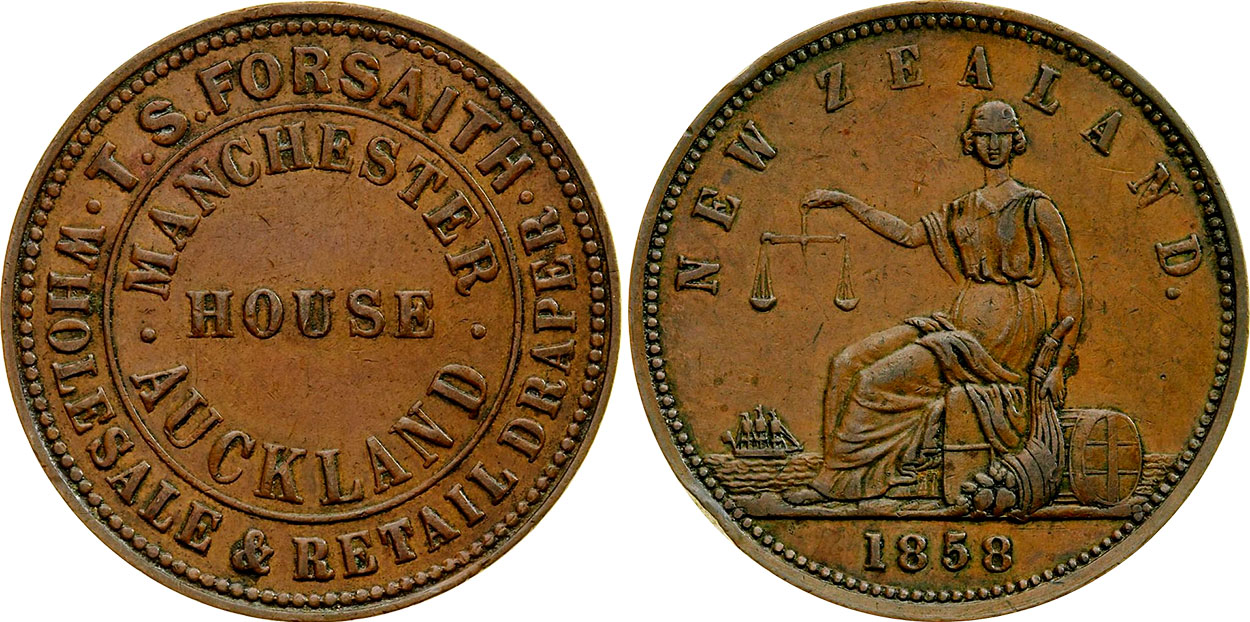T.S. Forsaith - Merchant
By Museums Victoria | Tuesday, 29 December 2020
T.S. Forsaith was born in England on July 18, 1814. He was educated at the Rev. Thomas Fancourt's Academy in Hoxton Square, London and was then apprenticed at a linen draper's shop in Croydon, Surrey.
As a young man he decided to go to sea and eventually his father arranged for him to work on a number of vessels. This included two that brought him to the antipodes, including a visit to Sydney in 1834. He visited New Zealand as First Officer of the Lord Goderich, and decided to migrate there. He returned to England, married, and formed a partnership with a Mr. Wm. White for the purpose of trading in Kauri pine. The partnership did not last.
He lived for a time in the Mangawhare region of Auckland, and his house and all his posessions were destroyed by the Maoris. During the process of seeking compensation, the government found out that he was fluent in the Maori language, and he became a sub-protector of natives, travelling extensively through the country in the early days of European settlement.
Through the connections he developed with Maori people he developed a business trading with them. This became the basis for his business Manchester House, Auckland, from which he issued his tokens. During this time he began his journalistic career, writing for the New Zealander and the Southern Cross.
He was a member of the New Zealand House of Representatives from 1853 to 1860 and held a Cabinet post for a short time. This included Premier of New Zealand for two days, during a period of political uncertainty immediately after the colony was granted self government in 1853.
He moved to Dunedin in 1863, and in 1865 he became the pastor at the Congregational Church, Port Chalmers. He moved to New South Wales after this and held pastorates at Point Piper-Road, Woollahra and Parramatta, and the chaplaincy of Camden College. He also founded the Congregational churches at Rookwood and Summer Hill. He was editor of the journal the New South Wales Independent for four years. He retired from pastoral service at the age of 70 in 1884.




